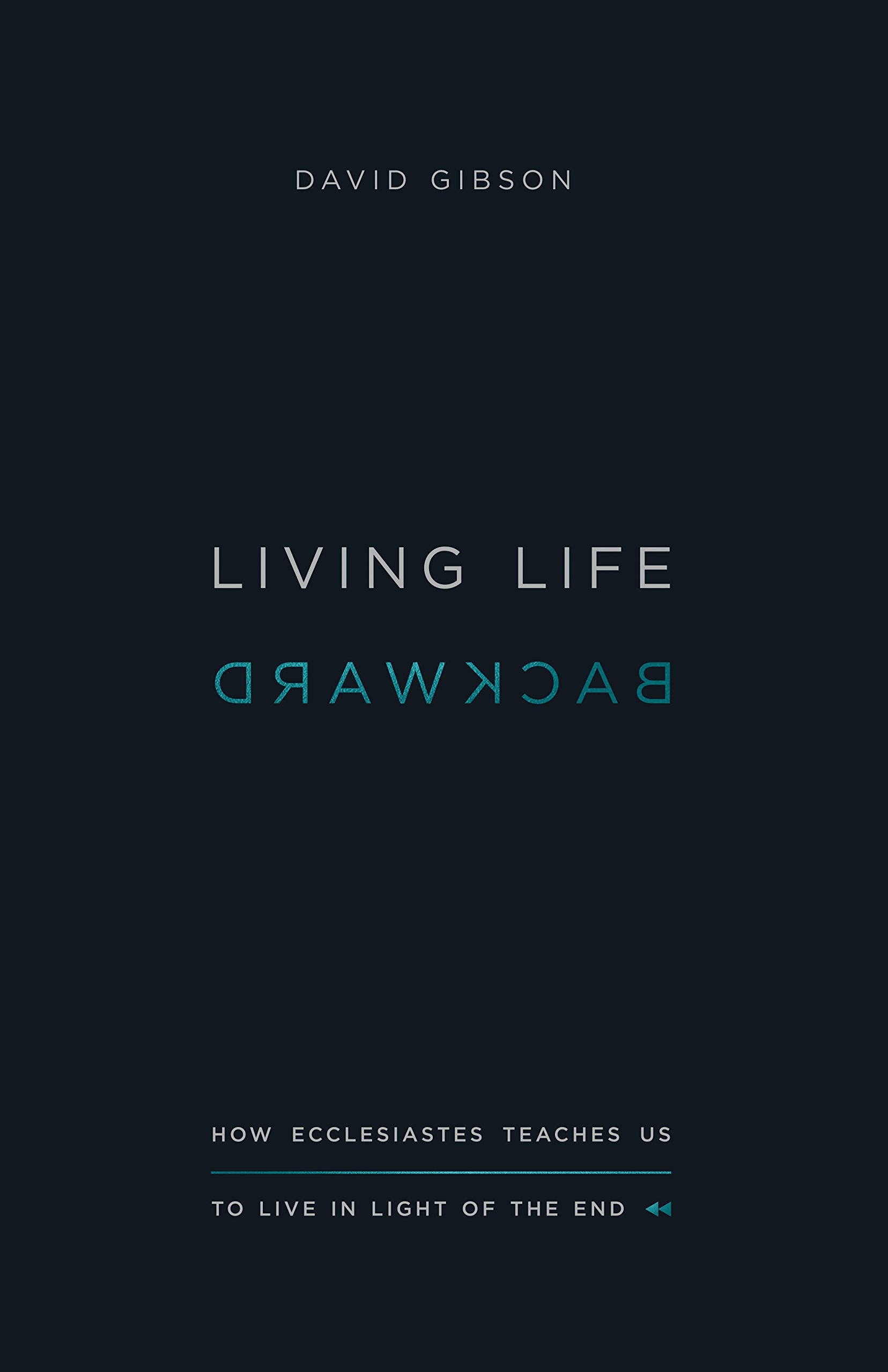A Brief Book Summary from Books at a Glance
By Matthew Claridge
About the Author
David Gibson (Ph.D. University of Aberdeen) is minister of Trinity Church in Aberdeen, Scotland.
Table of Contents
1. Let’s Pretend
2. Bursting the Bubble
3. Doing Time
4. Living a Life Less Upwardly Mobile
5. Looking Up, Listening In
6. Learning to Love the Limitations of Life
7. From Death to Depth
8. Things to Know When You Don’t Know
9. One Foot in the Grave
10. Getting the Point
Summary
Chapter One: Let’s Pretend
Gibson begins with the Preacher’s introduction to his message in Ecclesiastes 1:1-11. This opening section is meant to jolt us out of our illusions of what we can get out of life. The key word that sets off this explosive charge is hebel (Hebrew) typically translated as “vanity” or “meaninglessness” in more modern translations. Gibson is less satisfied with the latter gloss, preferring to locate the significance of the word in its more literal rending as “breath, smoke, vapor.” The author is not espousing existential nihilism, even as the devil’s advocate. Instead, the word conveys life’s shortness, elusiveness, and repetitiveness. Like a whiff of smoke, life is short-lived. Like passing vapor, lasting significance is impossible to attain or measure. Like the ever churning winds, life repeats itself in never-ending cycles.
Verse 3 sets off the main question of the book, whether any lasting significance can be eked out of this frustrating life. Then in a series of poetic back-and-forth reflections on nature’s cycles in 1:4-10, the author suggests that if nature can never find lasting rest then neither can our lives. The recurring phrase “under the sun” is of a piece with this reflection on nature’s cycles. Although Gibson concedes that the phrase in part locates this dreary perspective as an entailment of seeking meaning within a purely secular, materialist frame; the phrase, again, is less about philosophical speculation as it is a reflection on the repetitive cycles of life that now hold true in this epoch. In other words, it is a phrase that locates our lives within a broken time of God’s redemptive story, a time that will last until the consummation.
In this opening section, the disturbing pessimism is not offered as an end in itself, but as a means to an end. Namely, the author is bringing us to a point of accepting the finality of death, how it breaks all our quests to attain permanent “gain” and “novelty” out of this life. Having smashed these idols, the author seeks to lead us toward seeing life as “gift.” As Gibson concludes: “[the Preacher] is not just saying there’s no gain after we’ve chased the wind; he will insist there’s no need for the chase in the first place.”
Chapter Two: Bursting the Bubble
Here, Gibson reflects on Ecclesiastes 1:12-2:26. In his opening, the Preacher makes his point with reference to nature’s endless and repetitive cycles. Now, the author turns to the many pursuits people assume can break this cycle and bring permanent significance and rest. Many would object to the author’s dark reflections by pointing out all the ways people do seem to find significance through wisdom (education and knowledge), career, comfort and pleasure, and the accumulation of wealth and possessions. The author systematically walks through each of these pursuits and speaks from a position of authority as one who has tried them all, achieved them all, and was still left disillusioned with them all.
The most depressing fact the author learned through this process is that it matters little what one does, the same results happen to all. Whether rich or poor, wise or foolish, accidents happen, unforeseen catastrophes occur in the teeth of the most dogged determination to avoid them. The ultimate equalizer, of course, is death itself—something no amount of wealth, power, possessions, or pleasure can forestall. Even the hope of. . .
[To continue reading this summary, please see below....]The remainder of this article is premium content. Become a member to continue reading.
Already have an account? Sign In
